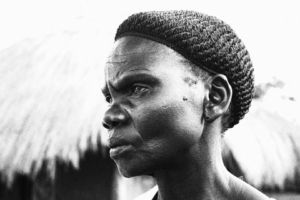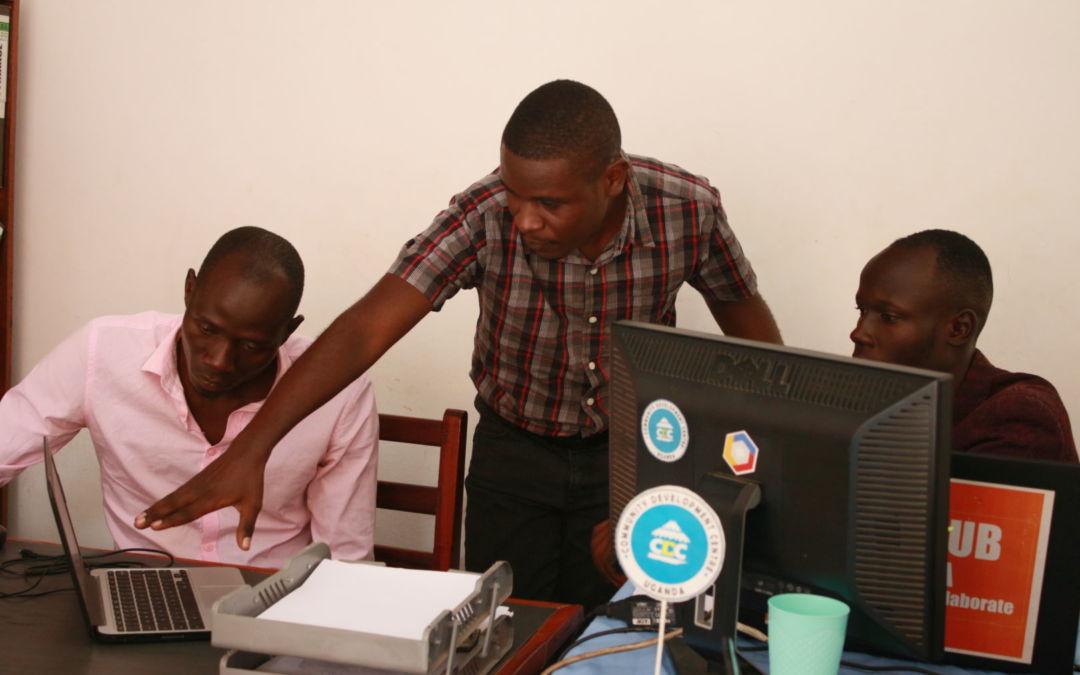“A refugee heard that someone back in South Sudan had come with soldiers to kill his family so he prepared his community to go and fight the people in another camp and take revenge on the perpetrator’s community.”
- Reported to the Sentinel Project team in northern Uganda, November 2018
We’re always working to expand the Sentinel Project’s programs into new areas where we can help and this week marks an important milestone as well as the beginning of a long-awaited new phase in our work as we launched the Hagiga Wahid project in Uganda, which will soon expand to include South Sudan. Hagiga Wahid, which means “One Truth” in Juba Arabic, is an information system set up to monitor and counter the spread of harmful misinformation which contributes to distrust and hostility between different groups of South Sudanese refugees as well as between refugees and Ugandan host communities. We are now piloting Hagiga Wahid in the Rhino Camp area of northern Uganda and plan to grow it further together with our local implementing partner, the Community Development Centre, and with support from the International Development Research Centre.
In addition to being a much-needed initiative in Rhino Camp, the launch of Hagiga Wahid is an important development for the Sentinel Project for three reasons. First, it marks the latest replication of our successful Una Hakika model which was developed in Kenya. Second, this is a critical step towards working in South Sudan, a country where we have long aimed to expand our work. Third, this presents a unique new learning opportunity with Hagiga Wahid being the first transnational effort to counter rumours in a conflict zone since it will be active both among South Sudanese refugees and in South Sudan itself. Harmful misinformation does not stop at the border and neither will our efforts to contain and mitigate it.

This woman (name unknown) living in Rhino Camp reported surviving gunshot wounds on her way to Uganda. She is now the only member of the Acholi tribe living in her area and has no family to rely upon.
South Sudan has a long history of conflict and violence with recent years seeing especially shocking levels of fighting, atrocities, and displacement of civilians. Numerous people have been killed, tortured, forced from their homes, or otherwise traumatized while the international humanitarian response has been insufficient. The country remains highly unstable and with more than a million South Sudanese refugees living in northern Uganda, the neighbouring country has in some ways become an extension of the conflict. While the area is fortunately relatively peaceful right now, the same hostility that drives conflict in South Sudan has come with the refugees to Uganda. Much effort is needed to help maintain and improve that peace, which is often threatened by rumours that drive distrust, fear, and hatred, thus threatening intercommunal relations.

This young man named George Bida reported being the only survivor from a group of 41 people who were attacked in a church while he was fleeing to Uganda. He now lives in Rhino Camp, where he is finishing secondary school, and aspires to be a journalist.
Our team conducted fieldwork in Rhino Camp during November 2018 as part of setting up Hagiga Wahid and we learned a lot about the issues affecting refugees, how they access information about the situation around them and back in South Sudan, and the ways that rumours and misinformation impact them. Many people reported lacking access to reliable information and this situation of uncertainty combined with the fearful environment makes it difficult for people to make effective decisions about how to relate to other communities. Our survey found that a large number of South Sudanese refugees do not at all trust information received from members of other ethnic groups and nearly 95% of respondents said that rumours have contributed to violence and instability. During group discussions, people shared stories of incidents when rumours have caused problems. In one case, a fight between two children at a school inspired a rapidly-spreading rumour that the school was being attacked by a rival tribe, causing some people to prepare to defend against a non-existent threat. Fortunately, community members were able to discover the truth before any violence began. That may not always be the case, which is where Hagiga Wahid comes in.
Just like Una Hakika in Kenya and our similar projects in Myanmar and Congo, Hagiga Wahid subscribers will be able to report rumours through text messages, voice calls, social media, and a network of trained, multiethnic volunteers. The project team will then investigate to determine the facts and ultimately report back to the community with accurate information while engaging other stakeholders for additional peacebuilding work if necessary. Beyond improving day-to-day access to reliable information, our goal is to encourage increased critical thinking and build trust between the members of different tribes. Together, these factors will help to create lasting peace.
It will also be important to engage Ugandan host communities in Hagiga Wahid due to the high potential for conflict created by local competition (either real or perceived) over limited resources like water and trees. Since many of the rumours circulating among the refugees in Uganda relate to events in South Sudan, it will be critical to establish Hagiga Wahid on both sides of the border and we will begin working on that soon. This way, when refugees report rumours about events in South Sudan, our team there will be able to start investigating right away, ensuring that false reports about events in one country don’t destabilize the other.
Follow us on Twitter or Facebook to continue getting updates about how Hagiga Wahid evolves. You can also join our mailing list to receive occasional newsletters.

